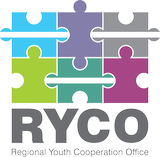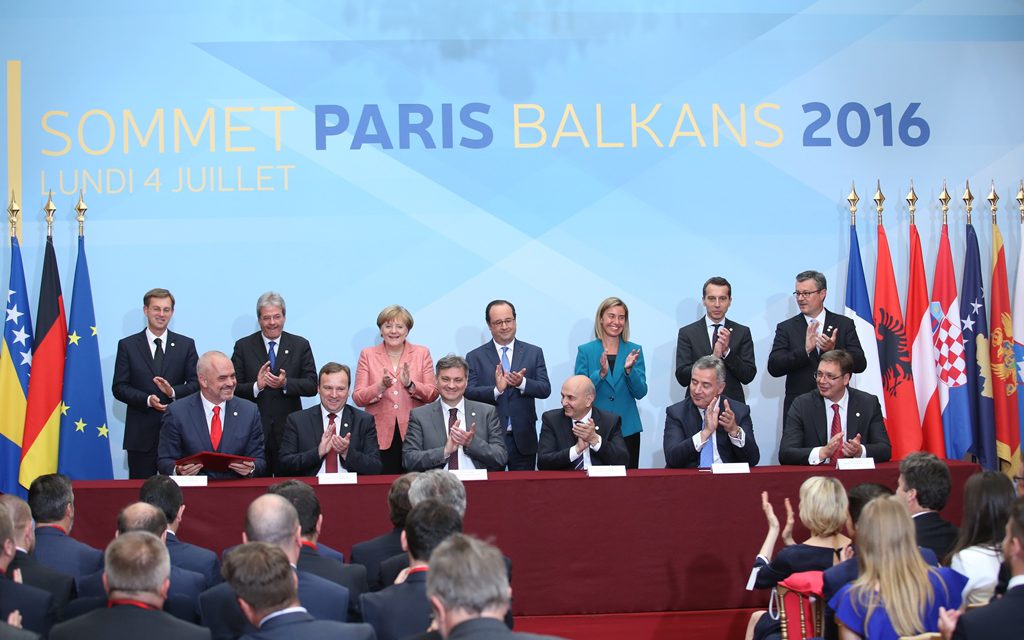“Some years ago we only dreamt about it. Now, it has actually come true.”
This is what a representative of a youth organisation from the Western Balkans told me in Paris on 4 July 2016. That was the day when the six governments signed the common agreement creating RYCO. For years, different youth organisations in the region had advocated for stronger governmental commitment and support for youth exchange within the Western Balkans in order to allow young people to meet and to overcome the physical and psychological borders that remain so strong in the region.
The opportunity and the concrete incentive to create RYCO came with the Berlin Process, launched by the German government in 2014. The aim was to address the issue of the lack of regional cooperation within the Western Balkans through concrete projects and at the same time to introduce a new dynamic to relations between the EU and the accession candidates. In the frame of the Berlin Process, the governments of Serbia and Albania proposed to create an official structure to support youth exchange. The governments of Bosnia and Herzegovina, Kosovo*, Montenegro and North Macedonia agreed to support this proposal.
The six governments cooperated with civil society actors in order to create a step-by-step plan for the establishment of the future institutional mechanism and asked international actors to support this process. The Franco-German Youth Office (FGYO) coordinated and moderated the working process that led to the creation of RYCO, which received the political backing of the German and French governments and other international actors involved in the Berlin Process.
The Franco-German Youth Office was created in 1963 as a follow up to the Franco-German cooperation treaty signed by the French President Charles de Gaulle and the German Chancellor Konrad Adenauer in order to support and develop youth exchange between both countries. The idea was that in order to remain sustainable, reconciliation and cooperation need to be anchored not only at the governmental level, but also in the civil societies. The FGYO later opened its programmes for young people from other countries with the idea to put Franco-German cooperation in the service of European integration. Since 2000, the FGYO has organised and supported exchange programmes that include young people from France, Germany and the Western Balkans.
After it opened in 2017, RYCO quickly become operational. It launched four open calls for youth exchange projects within three years and organised many other activities such as training, research projects, institutional meetings and information campaigns, while it built numerous partnerships with local and international organisations.
This short summary does not only remind us of the history of this new and young organisation, it is also a good starting point to better understand the political importance and significance of RYCO and why this new institution is indeed something special and unique. Four points should be underlined in this perspective:
- Regional cooperation is not the dominant trend within the Western Balkans, where political relations remain tense and where regional initiatives are sometimes announced but are not implemented. RYCO was created in spite of and against this trend. While the difficult general political context can have a negative influence on the work of RYCO the very fact that it has been established and is working underlines that a form of common cooperation is possible within the Wester n Balkans, between the six governments and beyond. The singularity of RYCO appears also in the fact that it was the very first outcome of the Berlin Process and remains one of the few to appear thus far.
- RYCO is neither a governmental agency nor a youth NGO, but an institution by its own with its own legal structure. RYCO was established through a cooperation process between governments and civil society actors and the institution embodies this partnership structurally. This is especially true of the Governing Board of RYCO, which is the highest decisionmaking body, where there is equal representation among youth and government representatives. Yet this is by no means selfevident, knowing the mutual mistrust that generally exists between governments and civil societies in the region. In fact, such a close and structural interlinkage between civil society and government as in the case of RYCO did not exist within the Western Balkans before. The strong position of youth representatives in the Governing Board goes beyond many similar institutions at the international level, such as the Franco-German Youth Office where government representatives dominate the administrative board.
- RYCO connects regional ownership and international support. It has been constituted in an international framework and has developed a lot of international cooperation since it opened: The Berlin Process created the incentive to establish RYCO and the Franco-German Youth Office was at the same time its inspiration and the facilitator for its establishment, but it has not been a copy-paste model. The governments and civil society actors who established RYCO were aware that they needed to build an institution that is adapted to the specific needs of the region. The regional actors and international supporters agreed that it was crucial for the sustainability and legitimation of the new institution that its ownership remained within the region. All decisions – the general strategy, the budget, the office structures and the organisation’s activities – are made by regional actors and not in Brussels, Berlin or Paris. Yet this does not exclude strong international connections, because RYCO clearly presents itself through a European perspective and a commitment to European ideals and ideas.
- RYCO encourages and supports youth exchange in the region, but its scope extends beyond youth. It operates as a grant-making organisation but is not limited to this role. RYCO has a political mission and vision as articulated in the Agreement to “promote reconciliation, mobility, diversity, democratic values, participation, active citizenship and intercultural learning.”
By allowing young people to meet and to learn with and about each other and by connecting schools, NGOs and other structures RYCO is giving young people a more active role in their society and through this contributes to the fight against the negative legacies of the past.
The fact that RYCO is politically important does not mean that it can resolve all of the problems of the Western Balkans and it would indeed be dangerous to expect too much from this new institution. RYCO can play a significant role in improving relations in the region by bringing young people together and by connecting governments, civil society and other structures and by formulating a vision for a better future and encouraging everybody to become an active part of this new vision. Yet the governments should not assume that by creating RYCO they have done enough regarding the question of reconciliation.
Reconciliation is a long-term and complex process that requires commitment in many ways and at all levels. Neither young people nor RYCO can achieve this task alone. This is why RYCO’s slogan is not ‘Young people will make the region better’ but that ‘A better region starts with YOUth’.
Yes, young people can and do play a role here. Yet everybody needs to contribute, which means you who are reading this text regardless of whether you work for a government, an NGO, an international organisation or in any other field.
Nicolas Moll
Crossborder Factory
This article is a part of the RYCO publication “A Better Region Starts with YOUth” which can be accessed here. The central part of this publication is a scientific research conducted by the team of researches from the University of Vienna. The research focuses on young people in the Western Balkans and their participation or non-participation in regional youth exchange programs supported by RYCO.
Photo © European Union, 2016, EC – Audiovisual Service
___________
*This designation is without prejudice to positions on status and is in line with UNSCR 1244 and the ICJ Opinion on the Kosovo Declaration of Independence.



